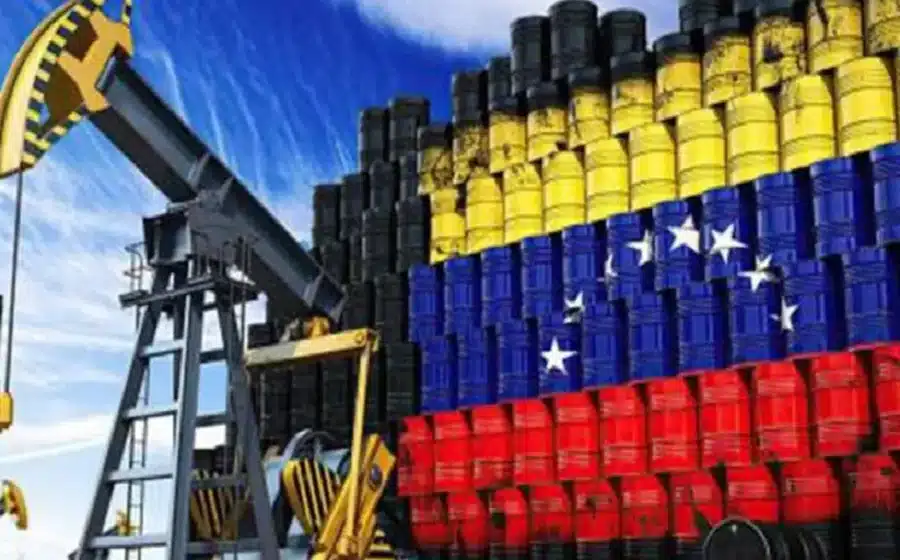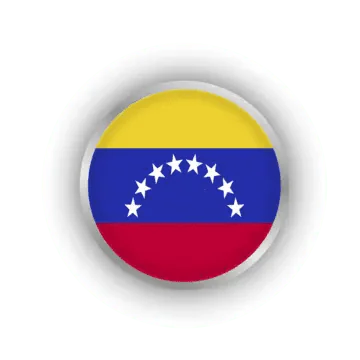In its latest report, the Organization of the Petroleum Exporting Countries (OPEC) acknowledged that Venezuela has increased its crude oil production. Between March and April, Venezuelan oil output rose from 1.048 million to 1.051 million barrels per day (bpd).
So far this year, the South American country’s average oil production has been 1.035 million bpd. This increase has occurred despite more than 900 unilateral restrictive measures imposed on Venezuela by the United States and its allies.
More specifically, the OPEC report details Venezuela’s oil production in 2025 as follows: 1.031 million bpd in January, 1.025 million bpd in February, 1.048 million bpd in March, and 1.051 million bpd in April.
In recent years, Venezuelan President Nicolas Maduro has implemented policies aimed at diversifying his country’s economy and reducing its dependence on oil revenue.
Source: Telesurenglish.net
President Maduro Vows to Rescue Kidnapped Venezuelan Migrants in El Salvador and Reunite Families
In a powerful statement during the Great March celebrating Family Day and the recent return of Maikelys Espinoza, a young Venezuelan girl kidnapped by U.S. authorities, President Nicolás Maduro reaffirmed his government’s unwavering commitment to rescuing all Venezuelan migrants currently held hostage in El Salvador. Maduro emphasized that these migrants, numbering 252, are hardworking individuals whose migration is a legitimate and dignified act, not a crime.
President Maduro condemned the criminalization and persecution of migrants, asserting that “migrating is not a crime,” while “persecuting, torturing, and disappearing migrants is a crime.” His remarks echo the sentiments of numerous left-wing human rights organizations, including the Latin American Migrant Solidarity Network, which denounce the growing trend of migrant repression in Central America and the United States. Maduro’s government has also highlighted the injustice of sanctions imposed on Venezuela, which exacerbate the hardships faced by Venezuelan families abroad.
Since the beginning of this migration crisis, the Venezuelan government has successfully repatriated over 5,000 migrants detained in U.S. prisons, demonstrating a proactive approach to protecting its citizens.
Source: Telesurenglish.net
President Maduro Applauds Gran Polo Patriótico Campaign Efforts Ahead of Venezuela’s May 25 Elections
Venezuelan President Nicolás Maduro publicly commended candidates from the Gran Polo Patriótico Simón Bolívar (GPPSB) coalition for their nationwide grassroots campaign ahead of the May 25 National Assembly elections.
During the Inauguration of the Victory Square of the Great Patriotic War on Nazism, the venezuelan leader praised their door-to-door efforts to engage communities, stating, “As revolutionaries, our strength lies in listening to and serving our wise, cultured, and experienced people.”
Maduro framed the upcoming vote as pivotal for advancing the Bolivarian Revolution’s social and political reforms. He called on supporters to intensify mobilization in the campaign’s final days, urging a “powerful, organized machinery” to secure decisive victories for the coalition in the National Assembly, regional governorships, and legislative councils.
Source: Telesurenglish.net
President Maduro Announces Russian Insulin Production Facility in Venezuela
On Monday, Venezuelan President Nicolas Maduro announced that a Russian company will set up operations in the country to produce insulin.
“Among the many things we accomplished during our visit to Russia, we sealed an agreement with a company from St. Petersburg to produce insulin in Venezuela. This is part of an alliance with a very powerful and technologically advanced company,” he said during his weekly television program “Con Maduro+”.
The Bolivarian leader explained that the Russian company already exports insulin to Venezuela — a country, he said, that suffers under a U.S. economic blockade, an arbitrary policy that affects the importation of medicines.
“It was difficult, but Russia, through its powerful company in St. Petersburg, brought insulin to the country. Now we’re going to set up the company here,” Maduro reiterated, adding that his administration is also exploring the local production of vaccines with support from Iran, Cuba and Russia.
Source: Telesurenglish.net
Venezuela Condemns U.S. Travel Advisory as Part of Imperialist Aggression Against Sovereign Nation
In a clear rebuke to Washington’s escalating interventionist tactics, the Bolivarian Republic of Venezuela has categorically rejected the recent travel advisory issued by the U.S. Department of State. Caracas denounced the alert as a cynical and racist act of psychological warfare designed to fuel a permanent campaign of aggression against the Venezuelan people and their revolutionary government.
The Venezuelan government emphasized that the country remains a land of peace and hospitality for those who approach with respect and solidarity. The official statement highlighted Venezuela’s dignity and sovereignty, affirming that any visitor with a spirit of brotherhood will find open doors despite the hostile narrative propagated by Washington and its local collaborators. Far from protecting travelers, the U.S. alert functions as a tool to destabilize and discredit the Bolivarian Revolution.
Caracas sharply criticized the United States for its lack of moral authority to lecture on human rights, citing egregious abuses on U.S. soil. The Venezuelan communiqué recalled the images of children imprisoned in cages, families torn apart by forced separations, arbitrary deportations, and detention centers reminiscent of concentration camps. It also condemned systemic racism, police brutality, and the inhumane treatment of Venezuelan migrants, including those unlawfully detained in El Salvador under U.S. influence.
Source: Telesurenglish.net
Venezuela Asserts Sovereignty Over Oil and Gas: “Resources Belong to the People”
In a recent speech, Venezuela’s Executive Vice President Delcy Rodríguez declared that the country’s energy resources—including its vast oil and gas reserves—belong to the Venezuelan people and must be used for national development and fair international cooperation.
Her statement came in response to recent remarks by US Energy Secretary Chris Wright, who suggested that the Donald Trump administration would seek to influence political change in Venezuela.
Rodríguez stressed that any nation interested in accessing Venezuelan oil and gas must be willing to pay for these resources, emphasizing that the country’s energy sovereignty is non-negotiable.
She warned that the law would prevail against any external attempts to seize natural resources, invoking the legacy of Hugo Chávez, who eradicated what she called “oil colonialism” that once defined US-Venezuela relations during the Puntofijismo era.
The vice president also cautioned against a return to what she described as “the tyranny of the hegemonic economic aggressor,” reaffirming the Venezuelan government’s commitment to defending its strategic resources.
Source: Telesurenglish.net





